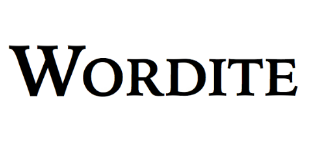maund - What does it mean?
'maund' hits on the web
You may have been searching for a specific social media @maund profile or the tag #maund
Definition of 'maund'English
Etymology 1
From (etyl) maunde, mande, from (etyl) mand, . Cognate with Dutch mand, (etyl) mande, archaic German Mande, later influenced by (etyl) and (etyl) mande (< (etyl)). Related to (l).
Alternative forms
* (l)
* (l), (l), (l) (Scotland)
Noun
( en-noun)
A wicker basket.
A unit of capacity with various specific local values.
Etymology 2
( wikipedia)
Anglicised pronunciation of a word in many southern and western Asian languages. The -d probably from assimilation with Etymology 1 above, or from comparison with pound.
: Original root is unclear, but may be ( etyl) , "to measure".
:: Possibly cognate with ( etyl) .
Alternative forms
* mun
* man
Noun
( en-noun)
(archaic) A unit of weight in southern and western Asia, whose value varied widely by location. Two maunds made one chest of opium in East India. One maund equalled 136 pounds of opium in Turkey.
* 1888 , Rudyard Kipling, ‘In Flood Time’, In Black and White , Folio Society 2005, p. 410:
- Now the rail has come, and the fire-carriage says buz-buz-buz'', and a hundred lakhs of ''maunds slide across that big bridge.
Usage notes
This spelling (maund ) is usually used for the unit in British India, equal to 25 pounds avoirdupois at Madras, 28 pounds avoirdupois at Bombay and 10 troy pounds at Calcutta. For the equivalent unit in the and in Persian- and Arabic-speaking countries, it is more usual to use the spelling mun'' or ''man (italicised to show that the word has not been assimilated into English).
Etymology 3
Unclear, but possibly from (etyl) mendier or , "to beg". Compare (etyl) mang, "to beg".
Noun
(-)
(archaic) begging
Verb
( en-verb)
(archaic) to beg
- (Beaumont and Fletcher)
(obsolete) To mutter; to mumble or speak incoherently; to maunder.
Anagrams
*
*
Similar to 'maund'mind, monoid, monad, mend, mound, manned, monied, mund, mined, mand, mooned, maimed, moaned, maned, mimed, maenad, memoed, meaned, mummed, mawned, manid, maenid, menid, mimid, minuid, moinid, moned, menued, miened
|
